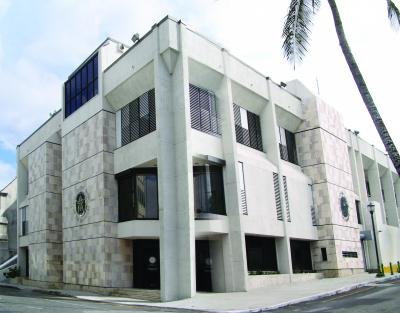NASSAU, BAHAMAS — The Central Bank is eyeing in excess of $300 million in ‘buffers’ as it has outlined several take measures if necessary to conserve on foreign exchange.
In a presentation today, Central Bank Governor John Rolle noted that the regulator’s dialogue with Government has focused on setting upper limits on how much of the deficit financing can sustainably occur in the domestic markets.
“The Central Bank has also emphasized, in the context of various advisory bodies, the importance of accelerating other interim access to foreign exchange earnings, such as foreign direct investment; and positioning the economy to recover as safely and swiftly as possible when tourism starts to rebound,” said Rolle.
“The bank has already taken some direct steps, either to establish priorities foreign exchange or to increase supplies.First, until a recovery is entrenched, resident access to foreign exchange for international capital market investments through Bahamas depository receipts and the investment currency market has been suspended.”
Rolls said: “That is, Bahamians are still urged to maintain their investment behaviour and to take advantage of local opportunities until external access is restored.”
Governor Rolle noted that the Central Bank has suspended approval of dividend payments for commercial banks.
“This has the dual effect of keeping buffers in place for an expected increase in credit losses and halting remittances abroad,” he said.
He further noted that commercial banks have been given a more relaxed margin within which to sell foreign exchange to the public, before they are able to draw on the Central Bank’s foreign reserves to make sales to the public.
“In keeping with the principle of viewing the National Insurance Board’s foreign investments as an extended support for the foreign reserves, the Central Bank has requested the NIB to liquidate some of its external investments and bring the proceeds back onshore,” he said.
He noted that the Central Bank is prepared to take additional, broader measures if necessary, to conserve on foreign exchange, and would do so in the near-term rather than later, if the outlook justifies this.
“If adopted, these measures would target domestic import capacity,” he added.
He said: “Collectively between the various measures that the Central Bank has identified we are looking at in excess of $300 million in buffers. We are still assuming that those foreign exchange are being diverted and used for consumption within the economy.”
“While there have been some suggestions that monetary policy could be used to stimulate the economy, this is not an option for The Bahamas. Stimulus through lower interest rates or relaxed credit policies would result in increased consumption on imports, which would undermine the efforts to protect the foreign reserves.
Rolle said: “The stimulus for the economy needs to be tied to expanded access to foreign exchange. The Government is in a position to do this through its borrowing strategy. As well, in line with the 2016 liberalization measures, the Exchange Control regime allows for a generous subset of private firms to raise financing in foreign currency.
“The Central Bank is ready to process such proposals and extend approvals as swiftly as they are put forward,” he added.






